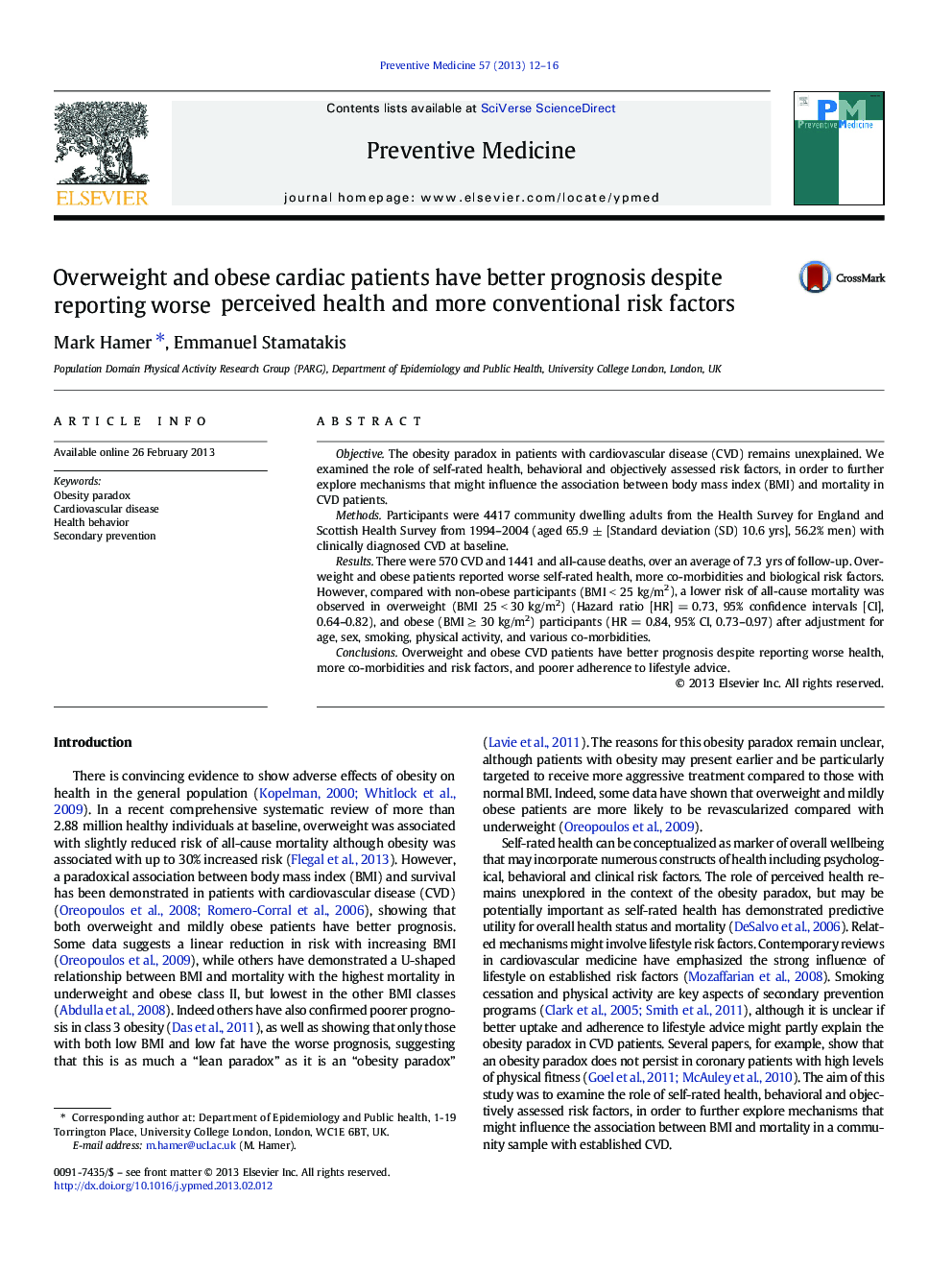| Article ID | Journal | Published Year | Pages | File Type |
|---|---|---|---|---|
| 3100550 | Preventive Medicine | 2013 | 5 Pages |
ObjectiveThe obesity paradox in patients with cardiovascular disease (CVD) remains unexplained. We examined the role of self-rated health, behavioral and objectively assessed risk factors, in order to further explore mechanisms that might influence the association between body mass index (BMI) and mortality in CVD patients.MethodsParticipants were 4417 community dwelling adults from the Health Survey for England and Scottish Health Survey from 1994–2004 (aged 65.9 ± [Standard deviation (SD) 10.6 yrs], 56.2% men) with clinically diagnosed CVD at baseline.ResultsThere were 570 CVD and 1441 and all-cause deaths, over an average of 7.3 yrs of follow-up. Overweight and obese patients reported worse self-rated health, more co-morbidities and biological risk factors. However, compared with non-obese participants (BMI < 25 kg/m2), a lower risk of all-cause mortality was observed in overweight (BMI 25 < 30 kg/m2) (Hazard ratio [HR] = 0.73, 95% confidence intervals [CI], 0.64–0.82), and obese (BMI ≥ 30 kg/m2) participants (HR = 0.84, 95% CI, 0.73–0.97) after adjustment for age, sex, smoking, physical activity, and various co-morbidities.ConclusionsOverweight and obese CVD patients have better prognosis despite reporting worse health, more co-morbidities and risk factors, and poorer adherence to lifestyle advice.
► The obesity paradox in CVD remains unexplained. ► Overweight demonstrated the lowest risks of all-cause mortality. ► Self-rated health did not explain the effect.
